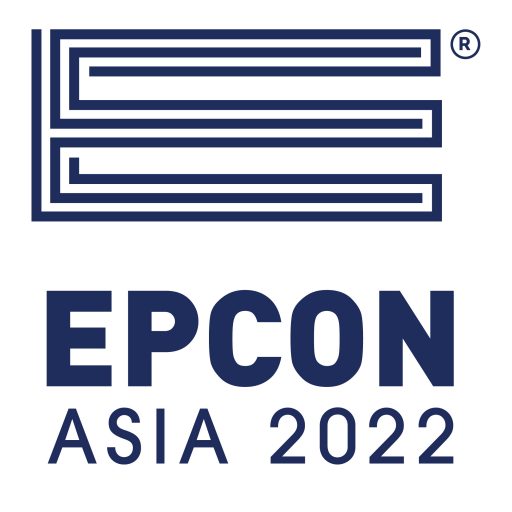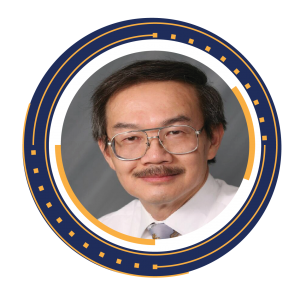
22 August 2022 (0900 – 1700) – GMT +8
For electronic devices, solder joints often are the weakest link in terms of reliability. The failure of solder joints may be caused by temperature, stress, electrical current, or chemical reactions, and may occur at level one and level two, depending on the device type and application conditions. In this course, the Part 1 will address the electromigration issue at die attach level for high power devices, and the Part 2 will address the solder joint behavior based on fundamental material properties and the failure modes will be introduced, with emphasis on lead-free solder joints at both level 1 and level 2.

23 August 2022 (0900 – 1700) – GMT +8
The industry is evolving very rapidly, with multiple challenges emerging at the same time on soldering. The cost, the reliability, and the reduced process temperature. Any one failed to address any of those challenges will be left behind in this fierce competitive environment. This course will bring the answer to you, with the most updated information on the new solder materials developed, and will also help you to justify the selection of solder types which fit best for your applications. The course is divided into two parts, with part 1 addressing the cost and reliability, and part 2 address the 5G applications.

24 July 2022 (0900 – 1700) – GMT +8
With abundant case studies illustrating the principle and application of Design for Manufacturability (DFM) and Design for Reliability (DFR) in advanced soldering technology, you will be able to apply both on your SMT design and process of soldering job and achieve high yield and high reliability very easily, and also be ready to face the new challenges emerged. This course covers the principles of DFX, aiming at allowing the course taker maximize the output of manufacturing yield and reliability when addressing advanced soldering technology. The content contains two Parts, Part 1 emphasizes on Design for Manufacturability (DFM) and Part 2 emphasizes on Design for Reliability (DFR) for SMT manufacturing. Each of the design consideration is exemplified with a real case study, with fundamental consideration and mechanisms of challenges well illustrated.

22 August 2022 (0900 – 1700) – GMT +8
Workshop participants will receive a detailed review of failure analysis methods and reliability testing in assembly. Quickly finding and eliminating package defects and failures due to assembly issues is critical. Package reliability directly affects manufacturing yield, time to market, product performance, customer satisfaction and cost. Many process steps and controls are needed for a high yield and reliable assembly process. A thorough understanding of product and technology reliability principles and mechanisms of failure is essential. Knowledge of defects and failure mechanisms enables a high yielding successful assembly process through material choices, package design, process optimization, and thermo-mechanical considerations. Fault isolation, failure analysis, and materials analysis play a major role in the improvement of yield and reliability. Coordination of engineers from many disciplines is needed in order to achieve high yield and reliability. Each engineer needs to understand the impact of their choices and methods on the final product. This workshop will discuss, using examples, mechanical and thermal failure mechanisms in assembly and detection methods.

23 August 2022 (0900 – 1700) – GMT +8
This workshop provides details on current and future assembly processes and technologies used in fan out package assembly. Examples taken from mobile smart phones to advanced server computing will be presented. The objective of this workshop is to provide the students with an overview of the technologies, materials, and processes involved in the latest fan out package assembly processes. The package end user, designer and sub-cons must compare all package options on the basis of functional attributes including form factor, I/O density, performance & cost to select appropriate package from the many fan out options available. Currently there are several choices for package assembly using fan out wafer level packages (FOWLPs). The original fan-out package; the embedded wafer-level ball-grid array (eWLB) continues to be popular. At the low cost end are low density fan out packages with <500 IOs with >8 micron L/S. At the high cost end are stacked die packages with >500 IOs and < 8 micron L/S. Multiple die can now be included in a fan out package incorporating stacked die connected using Through Silicon Vias (TSVs). The use of 200 or 300mm reconstituted wafer carrier to a panel as the assembly vehicle will be discussed. The workshop begins with a detailed comparison of advanced packaging technologies including all varieties of fan out packages including FOWLPs & SiPs to 3D stacked dice interconnected with TSVs. The workshop will discuss a chip first and chip last assembly option for fan out packages. Both wire bond and flip chip options will be compared. Types of fan out packaging include Wafer Level Fan Out, Panel Level Fan Out with embedded die, and Chip Last Fan Out packaging. These package options with low cost materials and process flows create simple low density devices.

24 August 2022 (0900 – 1700) – GMT +8
This one-day workshop provides a complete overview of current HVM wirebonding assembly process options and metrology specific challenges. A small bond pad pitch is critical as the number of bond pads that must be placed per unit area increases. This will require a large leap in wire manufacturing capability and improved wire bonding tools. New challenging assembly processes including direct wirebonding to Cu pads on ULK materials will be covered. Different methods of wire bonding such as thermosonic, ultrasonic and thermocompression will be discussed in this workshop. Several options for Cu wire are presented in the workshop. Using easy to understand terminology an in-depth review of wire bonding processes in assembly manufacturing and first level interconnects are discussed. Package and assembly technologies, wire bonding quality such as the wire pull test and a non-destructive pull test are covered. Wire bonding for COB applications, stacked die packages, coreless organic substrates will be discussed. Wire bonding problems using Au, Al or Cu wire and tape automated bonding are part of the class. Wire bonding infrastructure is so extensive that no other chip-interconnection technology can completely displace wire bonding in the foreseeable future.
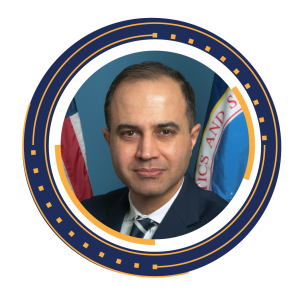
22 August 2022 (0900 – 1700) – GMT +8
Failure analysis is a vital tool in the effort to ensure reliability of electronic products and systems throughout their product lifecycle. Today, organizations involved in activities within the electronics supply chain are facing new challenges, not just from complex assembly styles, harsher lifecycle environments, and more sophisticated tools, but also from customers who are demanding a quicker turn-around. Unfortunately, root cause failure analysis is often performed incompletely, leading to a poor understanding of failure mechanisms and causes, and loss of resources and customers due to recurrence of failures. The tools and techniques applied by many test and FA labs today are geared only towards uncovering the apparent causes of failure, not necessarily the root causes. Thus, the corrective actions applied by manufacturers or end-users do not always eliminate problems. This can result in expensive, time-consuming, repeat occurrences of failures. This one-day workshop will discuss a range of topics, including root cause analysis, physics-of-failure principles, and failure mechanisms in electronics. Specimen preparation techniques, non-destructive and destructive analysis, and materials characterization will also be discussed. The first day of the workshop will present methodologies for identifying potential failure mechanisms in electronics based on the failure history and, systematic approaches to root cause analysis. The second day will cover failure analysis techniques geared towards various failure mechanisms, along with numerous component and PCB assembly failure analysis case studies that illustrate the techniques and analysis. Failure analysis case studies will be used to illustrate the techniques and analysis principles to arrive at the root cause(s) of field failures on printed circuit boards, active components, and assemblies.

23 & 24 August 2022 (0900 – 1500) – GMT +8
Printed circuit boards (PCBs) are the baseline for electronics manufacturing upon which electronic components are mounted and formed into electronic systems. PCBs are used in a variety of electronic circuits from simple one-transistor amplifiers to large super computers. A PCB serves three main functions: 1) it provides the necessary mechanical support for the components in the circuit 2) it provides the necessary electrical interconnections, and 3) it bears some form of legend which identifies the components it carries. The failure modes on the PCBs can be categorized in a hierarchical structure, in which the mechanisms and causes are site or location dependent. This two-day workshop will discuss a variety of failure mechanisms that effect the functionality of PCBs. These mechanisms can be related to how PCB materials are selected, PCBs are designed, manufactured, tested and used in the eld conditions. The workshop will begin with an overview of PCB manufacturing, materials and processes. With the help of examples and case studies, a wide range of failure mechanisms will be discussed, case studies are focused on digital circuits, however some failures in analog, double sided boards are also presented. The workshop then provides the guideline for selection of methodologies for identifying potential failure mechanisms based on the failure history and how a systematic root cause failure analysis of the PCB can result in prevention of future issues.

22 August 2022 (0900 – 1700) – GMT +8
To achieve the sought-after electronics miniaturization and the ever-increased circuit density and functionality, two families of IC packages, Bottom Termination Component (BTC) and Package-on-Package (PoP), are among the commonly adopted IC packages.This workshop focuses on BTCs and PoPs in packaging and the downstream manufacturing in assembly.
With the objective to optimize the production yield and product reliability, this workshop will provide an overview of BTC and PoP technologies and applications, as well as address the important aspects of materials, techniques, processes and reliability for both Pb-free and SnPb products. Various configurations of BTCs (e.g. QFN, LGA, MLF, SON, DFN) in periphery-leaded and solder-ball array packages will be outlined. The best practices of assembling BTCs including solder material, PCB assembly processes and rework will be discussed. The workshop will also deal with the real-world production issues and discuss the BTC solder joint reliability, and what it takes to make reliable solder interconnections in both package and PCB/module levels. The parallelism and distinctions between PoPs and BGAs, in particular – co-planarity, thermal stability of molding materials and conformal coating, will be outlined. The options and best practices of assembling PoPs including solder material, PCB assembly processes and rework will be outlined. The real-world production issues related to PoP solder joint reliability for upper package and lower package, and what it takes to make reliable solder joints will be discussed. Attendees are encouraged to bring their issues for discussion.

23 August 2022 (0900 – 1700) – GMT +8
Join us for a practical look at the advantages and use of Low Temperature Soldering (LTS) in this special workshop. LTS is gaining significant interest in the industry to reduce cost, prevent component and PCB damage and improve reliability. It’s different but that does not mean it cannot be introduced into your process with existing process equipment. Generally speaking, solders used regally in assembly reflow at over 230oC, low temperature solders reflow at under 180oC. Many companies have been using tin/bismuth alloys for some years reducing cost on PCBs and energy. Other companies have been using tin/indium for rework of lead-free area array packages with success. There are savings to be made even if the cost of some solder alloy is more expensive provided you consider the total cost of manufacture. We produced the first book, video and interactive guide on Pin In Hole Intrusive Reflow, so we believe we are in a good position to help engineers achieve high yields with low temperature materials with standard assembly or PIHR.
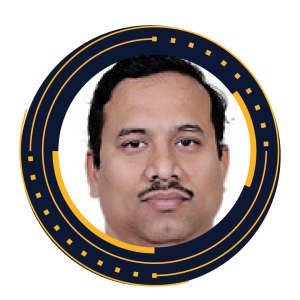
22 August 2022 (0900 – 1700) – GMT +8
Distributing power in high speed, high complexity integrated circuits has become a challenging task as power levels exceeding tens of watts have become commonplace while the power supply is plunging toward one volt. This workshop is dedicated to this important subject. The primary purpose of this workshop is to provide insight andintuition into the behavior and design of power distribution systems for high speed, high complexity integrated circuits.

23 August 2022 (0900 – 1700) – GMT +8
Modern embedded computer systems perform complex data processing jobs and hence often requires a large set of processors (homogeneous or heterogeneous) for higher performance. To support the various application needs the embedded system platform integrates various types of processing elements into the system, including general-purpose CPUs, application-specific instruction-set processors (ASIPs), digital signal processors (DSPs), as well as dedicated hardware accelerators implemented as application-specific integrated circuits (ASICs) and intellectual property (IP) components. This converges to the idea of System-On-Chip (SoC) design and more commonly Multi-processor System on Chip Design (MPSoC). However, the large size and complexity of these systems poses a great challenge to design and validation using traditional design flows. System designers are forced to move to higher levels of abstraction to cope with the many problems, including large number of heterogeneous components, complex interconnect, sophisticated functionality. This workshop will present the key techniques and challenges in regards to the efficient design of SoC/MPSoC based Embedded Systems with some important case studies.

24 August 2022 (0900 – 1700) – GMT +8
Distributing power in high speed, high complexity integrated circuits has become a challenging task as power levels exceeding tens of watts have become commonplace while the power supply is plunging toward one volt. This workshop is dedicated to this important subject. The primary purpose of this workshop is to provide insight andintuition into the behavior and design of power distribution systems for high speed, high complexity integrated circuits.

22 & 23 August 2022 (0900 – 1700) – GMT +8
The SMT Electronics Assembly Class is a practical overview of the many different processes and materials used in through-hole and surface mount technologies (SMT). It is a focused two-day long workshop, which provides students with the opportunity to learn and understand the processes, equipment, and materials used in today’s manufacture of electronic assemblies. It is taught by an experienced and knowledgeable instructor who has worked in a variety of electronics manufacturing related fields. Combining lecture, videos and discussion, this Electronic Assembly Basic Training workshop was designed to give a very comprehensive and complete ‘immersion’ into SMT and mixed technology PCB assembly. People who are new to the field as well as somewhat experienced personnel who want to “fill in the gaps” have found this workshop to be a perfect solution. As it runs only two days, it is extensive (and non- superfluous) without taking people ‘out of the shop’ for an extended period of time: learn, absorb and take that knowledge back to the manufacturing floor.

24 August 2022 (0900 – 1700) – GMT +8
Phil Zarrow of ITM Consulting will present a journey through troubleshooting the most common defects in SMT with an emphasis on identifying the fundamental root causes, and an entertaining overview of best practices. This is based upon real-world problems encountered in troubleshooting process, equipment and materials problems throughout the electronics assembly industry all over the world. Case studies are used throughout the workshop.
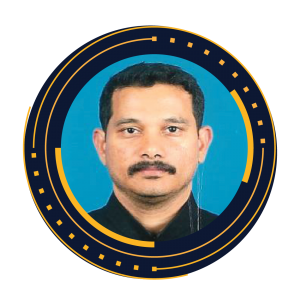
23 & 24 August 2022 (0900 – 1700) – GMT +8
Internal audit is fundamental to all management system standards as it is a means to establish status of conformity. However, with the latest update on the management system standards based on Annex SL, the emphasis has shifted to risk and performance. With this shift, an auditor has to change its perception of an audit – understand not only how to audit a system based on the requirements of the standard but also at the same time understand how an organization addresses its risks and opportunities to achieve its expected performance. Results of internal audits provide particularly useful information to management to continually improve its management system. The quality of the results depends mainly on the competency of the auditors. This course provides delegates with an understanding of how to conduct an audit on management system based on ISO 9001:2015 focusing on the organization’s processes, risk approach and its customer satisfaction performance.
.

Suha has diverse experience in the semiconductor industry where she started her career as a Test Development Engineer and paved the way to Hardware Design Engineer, then Technical Program Manager and Site Quality Manager. Currently, she is leading worldwide system integration operations, engineering operations, and supply chain for Micron. Suha is a passionate leader that drives transformations, a change agent, and a believer that talent management of the present and future is the key to success for an organization. She has been leading a women network throughout her career and leading the Asia region Micron Women Leadership Network.

Suha has diverse experience in the semiconductor industry where she started her career as a Test Development Engineer and paved the way to Hardware Design Engineer, then Technical Program Manager and Site Quality Manager. Currently, she is leading worldwide system integration operations, engineering operations, and supply chain for Micron. Suha is a passionate leader that drives transformations, a change agent, and a believer that talent management of the present and future is the key to success for an organization. She has been leading a women network throughout her career and leading the Asia region Micron Women Leadership Network.
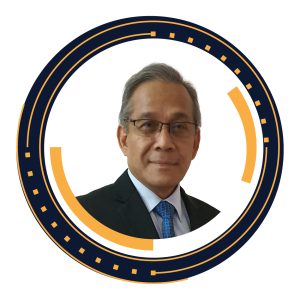
Noorazidi is currently attached to Inari Technology Sdn. Bhd. as Deputy Vice President for OTSP (Operation Technology and Strategic Programs) and EHS (Environment, Health and Safety). Inari Technology is a wholly owned subsidiary of Inari Berhad, the OSAT (Outsourced Semiconductor, Assembly and Test) company in Penang.
Azidi has been in the semiconductor related manufacturing and engineering sector for the past 30 years and now become the company champion on Industry 4.0 adoption since 2017. Beside transforming Inari into digitalization and Cyber Physical System adoption, he is also playing important role in ensuring the company meet and comply to the Environment Health and Safety policies
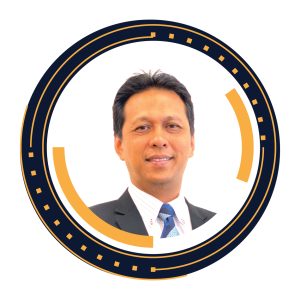
Muhammad Zaki bin Mohd Saman is the Head of Services, Investment (Tourism, Logistics & Digital Economy) at Northern Corridor Implementation Authority (NCIA). He has over 20 year background in Services sector i.e. Tourism, ICT, Telecommunication, Regional Development, Real Estate and Logistics. He holds a Master’s Degree in Management and Bachelor’s Degree in Economics from International Islamic University Malaysia (IIUM). In NCIA, Mr Zaki is working on the tourism, digital economy and logistics sector, mandated to boost socio-economic potential through investment and creation of job in the Northern Corridor Economic Region (NCER) comprising of the four states namely Perak, Penang, Kedah & Perlis.
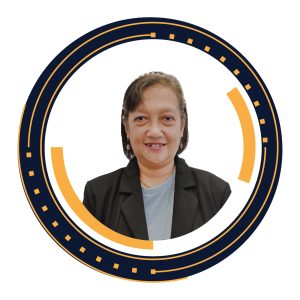
S. Asmazura Ismail has 26 years of experience in the manufacturing industry under E&E and M&E sectors, specifically in the Semiconductors Value & Supply Chain processes and activities. Graduated from University of Texas (UTA), USA in Industrial Engineering, Ms Asmazura has started as an engineer in the fields of Chemical Etching, Electroplating, Stamping, Forming & Tool Fabrication, and then advanced to senior positions in Engineering, Quality Assurance (QA), New Product (NPI) and Facility Management. Last post held, was a General Manager (GM) in one of the E&E companies in NCER.
In her current role as GM of Investment Cluster – Manufacturing for the Northern Corridor Implementation Authority (NCIA), Ms Asmazura is focused on facilitating the region’s investors to develop matching industry-need talent between the industries and academia, while simultaneously uplifting industry’s ecosystem development, integration, localization, and clustering, resulting in the inflow of investments into the Northern Corridor Economic Region (NCER)
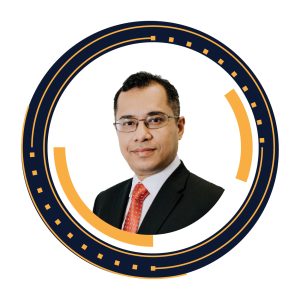
Hasri is the Chief Operating Officer (COO) at The Northern Corridor Implementation authority (NCIA), responsible to lead operations and strategic planning to facilitate the delivery of Northern Corridor Economic Region (NCER) outcomes and accelerate growth. In his current role, Hasri is responsible in operations, corporate advisory & strategic planning matters, which include the development of strategies to facilitate the delivery of NCER outcomes, as well as the review of new opportunities and initiatives that add value to the socioeconomic development in the region. He has over 20 years of experience in various industries; with roles in regional development, strategic planning, continuous improvement, programme and project management, internal control, as well as finance.
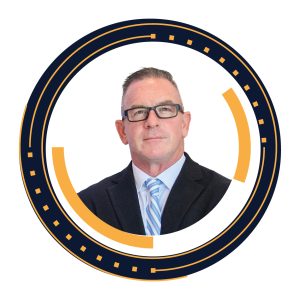
Mr. Ernest Sebak is the CEO of integrated electronics manufacturing services (EMS) provider ESCATEC and is based at the Group HQ in Bayan Lepas, Penang. He has built a solid reputation as an outstanding tactical and strategic leader, having served for more than three decades in in the global EMS, OEM, and IT industries.
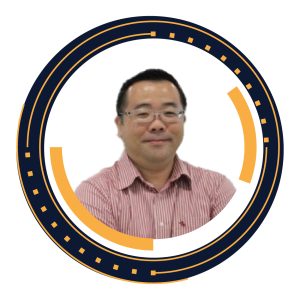
KT Tan graduated from the University of Technology Malaysia (UTM) in 2003 with a bachelor’s degree in electrical and electronics engineering. KT started his career in Solectron Technology as a quality engineer. He ventured into different manufacturing fields such as medical products, solid state drives, surface mount technology, consumer, and computer servers. Throughout his career, KT’s roles span as a quality auditor for ISO 9k, ISO13485, facilitator for FDA audit, and certified trained trainer. Currently, KT is holding the department head position for Product Reliability test and NPI in HP Malaysia Manufacturing Sdn Bhd. He is also the main sponsor and drive for initiating smart manufacturing through industrial 4.0 in HPMM.
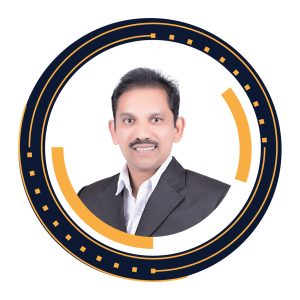
Andy M is the regional HR manager for Dell Technologies in Malaysia, Singapore, Thailand, and Vietnam. He has created and executed best practices programmes for organisational talent planning, diversity and inclusion initiatives, employee resource groups, wellness benefit programmes, career development, and sales performance management. Andy has also earned many Dells Employer of Choice and HR Innovation awards. In addition, he has garnered several Employer of Choice and HR Innovation awards for Dell Malaysia, Singapore, Thailand, and Vietnam.

Danny has over 15 years’ experience in manufacturing IT solutions for SEMI Industry. He is currently responsible for camLine Sdn Bhd operations and business development in camLine group and he actively partners with customers to define their own digital transformation and automation roadmap.

Dato’ Ts. Dr. Shanmuganathan Palanisamy, a transformational leader with high interpersonal skill and passion for innovation. He is the current Kontron’s Malaysia Chief Executive Officer (CEO). Prior to joining Kontron, after a short stint in Malaysia upon graduating from USA, he was based in overseas assignments at Hong Kong, China and Canada where he involved in various R&D Groups developing and manufacturing products for consumer, RF, Medical and embedded industries. He returned to Malaysia to continue contributing to R&D field. With his passion and versatile executive capabilities in engineering with development background, he managed to transform Kontron Malaysia from a manufacturing incline company to today’s R&D CoE (Centre of Excellence) for Kontron embedded boards , system and IoT (Internet of Thing) mainly focusing vertical applications in Industrial 4.0, Avionics and Transportation.
Dato’ Ts. Dr. Shaan begins his career as a RF engineer and continue building his career holding various technical and executive management positions through his 32 years tenure. He holds Bsc. Electrical Engineering (Major in Electronic and System Control), USA, master’s in business administration (MBA), Malaysia and awarded Doctor of Philosopy (PhD) from Universiti Sains Malaysia. He’s also currently appointed as E&E Productivity Nexus Chairperson for Strategic Initiatives 4 and Sub-Committee Council Member of the Penang Socio Economic Recovery Consultative Council (PSERCC). Recently, he has been appointed as Vice Chairman NSC 25/TC 11 (Innovation Management) under Departments of Standards Malaysia.

Dato’ Ts. Dr. Shanmuganathan Palanisamy, a transformational leader with high interpersonal skill and passion for innovation. He is the current Kontron’s Malaysia Chief Executive Officer (CEO). Prior to joining Kontron, after a short stint in Malaysia upon graduating from USA, he was based in overseas assignments at Hong Kong, China and Canada where he involved in various R&D Groups developing and manufacturing products for consumer, RF, Medical and embedded industries. He returned to Malaysia to continue contributing to R&D field. With his passion and versatile executive capabilities in engineering with development background, he managed to transform Kontron Malaysia from a manufacturing incline company to today’s R&D CoE (Centre of Excellence) for Kontron embedded boards , system and IoT (Internet of Thing) mainly focusing vertical applications in Industrial 4.0, Avionics and Transportation.
Dato’ Ts. Dr. Shaan begins his career as a RF engineer and continue building his career holding various technical and executive management positions through his 32 years tenure. He holds Bsc. Electrical Engineering (Major in Electronic and System Control), USA, master’s in business administration (MBA), Malaysia and awarded Doctor of Philosopy (PhD) from Universiti Sains Malaysia. He’s also currently appointed as E&E Productivity Nexus Chairperson for Strategic Initiatives 4 and Sub-Committee Council Member of the Penang Socio Economic Recovery Consultative Council (PSERCC). Recently, he has been appointed as Vice Chairman NSC 25/TC 11 (Innovation Management) under Departments of Standards Malaysia.

Prof. Amlan has almost 20 years of experience in Engineering Education and Research. His key contributions in research lie in the domains of Machine learning, Computer Vision, Cyberphysical Systems, Reconfigurable Computing, and Quantum Computing. He has received multiple project grants in the areas of Security in Cyber-physical Systems, IoT, Embedded System Design, VLSI Design, Quantum Computing, Computer Vision and Data Science from various national and international agencies and corporates. Besides, he also was the Principal Investigator of the Centre of Excellence in Systems Biology and Biomedical Engineering, the University of Calcutta funded by MHRD under TEQIP-III funding during 2013-2017. Prof Amlan also a Sr. Member of IEEE and ACM, IEEE Computer Society Distinguished Visitor (2020-2022), Distinguished Speaker of ACM (2017-2020) and Vice President of Society for Data Science. His editorial role comprises of Series Editorship of Springer Transactions on Computer Systems and Networks, Assoc. Editorship of Elsevier Journal of Computers and Electrical Engineering and G. Editorship of Springer Journal of Applied Sciences.
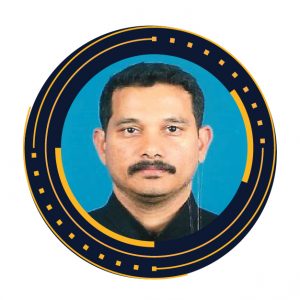
Shuras V holds a Bachelor’s Degree in Electrical Engineering graduated from University of Technology Malaysia and MBA from NTU Australia. He has master’s degree from Northern Territory University, Australia. He joined Sony Electronic (A- U Cell Manufacturing Organization),Prai Malaysia in 1991 as a Production Engineer and was responsible in establishing production standard for assembly operation, performing risk assessment for New Product Introduction, train new operators on the required SOP, work with CFT team on resolving production quality issues using QCC tools and Kaizen methodology, work with design centre in Japan for design change matters and perform time study with Industrial Engineer to improve the productivity of the shop floor. He is a UK certified Lead Auditor for ISO9001/TS16949 for 1st, 2nd, and 3rd party audit. He was MR (Management Representative) for more than 5 years–ISO9001/TS16949/AS9100. He has trained and coached many organizations on the correct understanding of the new ISO standard, namely ISO9001:2015, IATF16949:2016, ISO14001:2015 and ISO45001:2018, including the Risk Analysis.
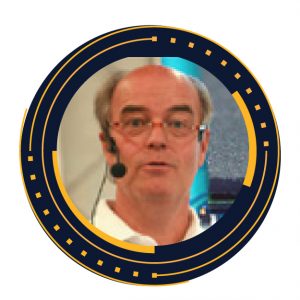
Bob Willis currently operates a training and consultancy business
based in UK and has created one of the largest collections of interactive training material in the industry. With his online training webinars Bob has provided a cost effective solution to training worldwide and regularly runs training for SMTA, NPL, SMART, IPC, EIPC and more recently IMAPS. Although a specialist for companies implementing lead-free manufacture Bob has provided worldwide consultancy in all areas of electronic manufacture over the last 30 years. This is based on working in manufacture with contract assembly, printed board manufacture and environmental test facilities. This has earned him the SOLDERTEC/Tin Technology Global Lead-Free Award for his contribution to the industry. He has also been presented with the SMTA International Leadership Award, SMTA International Best Paper Award and IPC Committee Award for contribution to their standards activity.

Mr. Bhanu Sood is a Chief Engineer, Quality and Reliability Division GSFC Deputy Chief Technology
(Detail), NASA’S Goddard Space Flight Center, USA. He serves as an agency expert and center specialist who manages overall center development efforts pertaining to electronic circuit assembly in Goddard Space Flight Center ground and flight missions. He serves as an agency authority on technical committees and advisory groups and manages the establishment and implementation of new research, technology development and technology demonstration initiatives relating to electronic circuit assemblies. His areas of expertise include electronics supply chain risk/reliability assessment, root-cause failure analysis and strategies for counterfeit parts prevention. He is the chair of three SAE Aerospace Standards Committees. He holds one patent, and two invention disclosures as well as the position of senior member of IEEE and member of SAE and ASM.

Dr. Ning-Cheng Lee is the Vice President of Technology of Indium Corporation. He has more than 30 years of experience in the development of fluxes and solder pastes for SMT industries and extensive experience in the development of underfills and adhesives. He serves on the board of governors for CPMT and served on the SMTA board of directors. Among other editorial responsibilities, he serves as editorial advisory board of Soldering and Surface Mount Technology, Global SMT & Packaging and as associate editor for IEEE Transactions on Components Packaging Manufacturing Technology.

Dr. Jennie S. Hwang is a pioneer and long-standing leader in SMT packaging and manufacturing, as well as in the lead-free development and deployment. Since its inception, she has been a major contributor to the implementation of Surface Mount manufacturing through hands-on production and as an advisor to OEMs, EMSs and the U.S. government. She has provided solutions to many challenging problems ranging from material performance deficiencies to production yield issues to field failure diagnosis to high reliability issues. Her work covers both commercial and military applications.
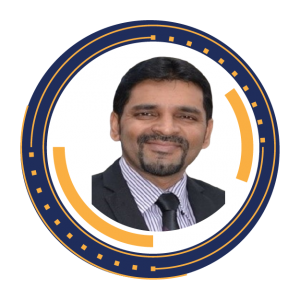
Passionate HR Leader
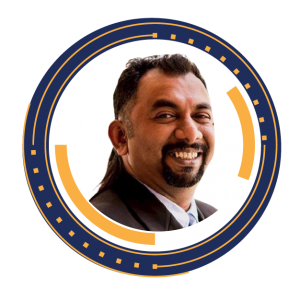
Balan Krishnan has more than 24 years of HR and Manufacturing under his belt. He has worked in various locations in Asia throughout his career at Intel and Altera, namely in Shanghai, Ho Chi Minh City and Singapore. He is currently the Head of HR at Dexcom a world leader in Continuous Glucose Monitoring device. He oversees a start-up of a brand new manufacturing plant in Penang which will grow from less than 10 employees to more than 3000 in a couple of years. Balan is a strong advocate of Diversity, Equity and Inclusion and was named one of Malaysia’s 50 leaders of Diversity and Inclusion back in 2012. He is a certified John Maxwell coach and facilitator. Balan graduated with an Arts degree from USM. Balan tries to live up to his credo of “Carpe Diem” after being inspired by the movie, The Dead Poet’s Society.
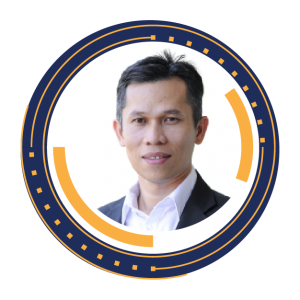
Fawnizu Azmadi Hussin has published more than 130 research papers and holds 6 patents under his name. He graduated from University of Minnesota (USA) in 1999, University of New South Wales (MSc-2001) and Nara Institute of Science and Technology (PhD-2008). Fawnizu was the Chair of IEEE Malaysia Section (2019-2020) and IEEE Circuits & Systems Malaysia Chapter (2013-2014) and was awarded the 2018 Region 10 (Asia Pacific) Outstanding Volunteer Award. He was Deputy Head of E&E department (2013-2014) and Director of Strategic Alliance Office (2014-2018) at Universiti Teknologi Petronas and Visiting Professor at Intel Malaysia (2012-2013) and Malaysia-Japan International Institute of Technology (MJIIT, 2020).
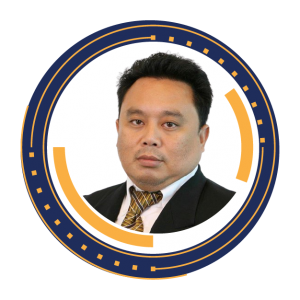
Mr. Shamsul is a technologist with experience in manufacturing and software development with MNCs, local corporations, and government. Among companies that he has worked with, are Hewlett Packard, Altera Corporation, Quantum Peripheral, and Sapura Research. He is currently leading the software development team in MIMOS Berhad in Kulim Hi Tech Park.

CS Tan graduated from USM in 1991 with a 1st Class Honours degree in Applied Physics and a winner of the Faculty Gold Medal. He also holds an MBA from USM. CS started his career in National Semiconductor Penang and has an illustrious career spanning over 30 years covering industries such as Semiconductor, Hard Disk Storage, and Electronics Manufacturing Services. In the past 15 years, CS has been the General Manager of large MNC factories, such as Flextronics, ON Semiconductor, and ST Microelectronics where he is currently based in. Throughout his career, CS Tan has led various important manufacturing initiatives such as Lean Manufacturing, Total Quality Management, Reliability Centred Maintenance, and more recently Industry 4.0 (Connected Manufacturing). CS Tan has spoken in various industry seminars and workshops in diverse fields such as Supply Chain Management, Factory Security, and Smart Manufacturing. He was also recently appointed as Adjunct Professor to the Faculty of Electrical and Electronics Engineering in UTEM, Melaka.
Howie Chang is the co-founder and CEO of Forward School, an accredited revolutionary technology and future skills school in Malaysia. He leads the growth and development of the company, with the goal of providing the best digital-age education in Southeast Asia. Having spent the formative years of his career in Singapore, he has a long experience in product management, user experience, and digital business transformation in various industries. Howie also had stints with startups of all kinds, where he delved into the dynamic intersection of design, business, and technology. He was also the Head of Design at Viki and Director of Product Management at RedMart, both of which resulted in two of the most notable tech acquisitions in Southeast Asia.
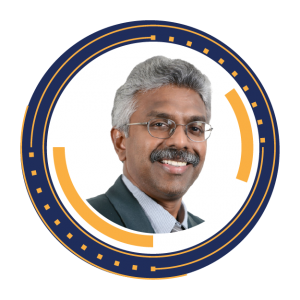
Sakthivel Narayanasamy or better known as Sakthi is the Chairman of Quantum Computing Sdn Bhd – a respected regional specialist in Automation Solutions. He has been in the engineering industry for the past 30 years leading local and regional projects in diverse industries. Sakthi has worked in a number of multinational companies such as General Electric and Siemens. He was a Senior Systems Engineer in Siemens Malaysia before he founded his own business ventures. The international exposure and engineering best practices gained in these companies have contributed to his ability to develop and innovate automation solutions that are practical, sustainable, and scalable with a business focus.
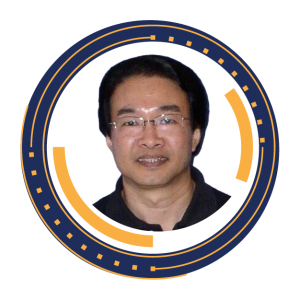
Swee Kiang (SK) Fong has more than 30 years of experience in the semiconductor industry. He started his career and worked in Intel for more than 20 years in various technical and management positions in US and Malaysia. He was instrumental in starting up Intel Design Center in Malaysia and growing the organization to 1500 people responsible for microprocessor, Chipset, SOC design, and development. He then joined Altera Corporation as VP of R&D, leading the development of advanced FPGA, IP, and Quartus software in Malaysia. He was the senior director of Broadcom Corporation overseeing the global operation of a USD1B division before starting up SkyeChip. SK holds a First Class BSEE degree from the University of Technology, Malaysia; and earned his EMBA degree (Beta Gamma Sigma) from Olin School of Business WUSTL, Missouri, and Shanghai Fudan University, China.
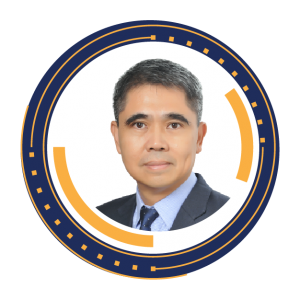
Bor Chun is Keysight Vice President and General Manager of Global Services for Greater China and the Asia Pacific. He has amassed a wide range of experience in the international arena. His expertise includes global marketing, strategic planning, business development, and the acquisition of new businesses. Since 2015, he become the leader of the Services organization and lead the team to continuously grow the business at double digits YoY. He is also an invaluable consultant for various areas other than marketing, with years of significant influence upon decisions in finance, administration, and customer support.
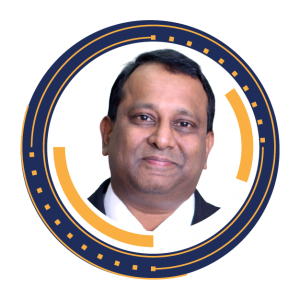
Kalai Selvan Subramaniam has more than 30 years of experience in the electronics/semiconductor industry with leadership positions in Technology Start-Ups to Tier-1 Semiconductor MNCs. He is passionate about setting up organizations from the ground up. He has been instrumental in setting up local capabilities to provide value add E&E engineering services, especially in the area of Semiconductor IC Design and Product Development to Tier-1 Electronics and Semiconductor companies. He is the Co-Founder CEO of Infinecs Systems Sdn. Bhd. Prior to that, he was the General Manager of USains Infotech Sdn. Bhd.
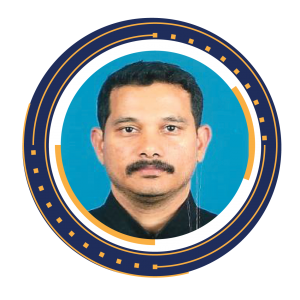
Mr. Shuras Vasu has more than 24 years of operation excellence applying various analytical tools for decision making and continuous improvements. He carries with him strong expertise of Lean Six Sigma, Shop Floor Management, TPM, TQM, CQE and QMS. He has also implemented many TPM initiatives for his organisation especially on the OEE improvements under the Japan Institute of Plant Management. He had the great opportunity to implement the World Class Manufacturing System called New Shop Floor Management. He is well versed with the 5 core tools applications for Automotive Manufacturers.

Dr. Tom Dory has extensive experience in microelectronics covering semiconductor fab processing and assembly, hybrid circuits, and package assembly & test. He left Intel Corporation where he handled Assembly and Test Technology Development Research Division after 20 years. He specialized in packaging and assembly, focusing on high density substrate manufacturing, and chip assembly including flip chip and stacked die and 3D packaging. He was awarded ten patents while at Intel in the areas of embedded package capacitors, underfill applications, and package design. He currently is the R&D manager for formulated products at Fujifilm Electronic Materials, USA.

Mr. Phil Zarrow has been involved with PCB fabrication and assembly for more than 35 years. His expertise includes the manufacture of equipment for circuit board fabrication and assembly of through-hole and surface mount technologies. In addition to his background in automated assembly and cleaning, he is recognized for his expertise in surface mount reflow soldering technology and in the design and implementation of SMT placement equipment and reflow soldering systems. He has extensive hands-on experience with set-up and troubleshooting through-hole and SMT processes throughout the world.
